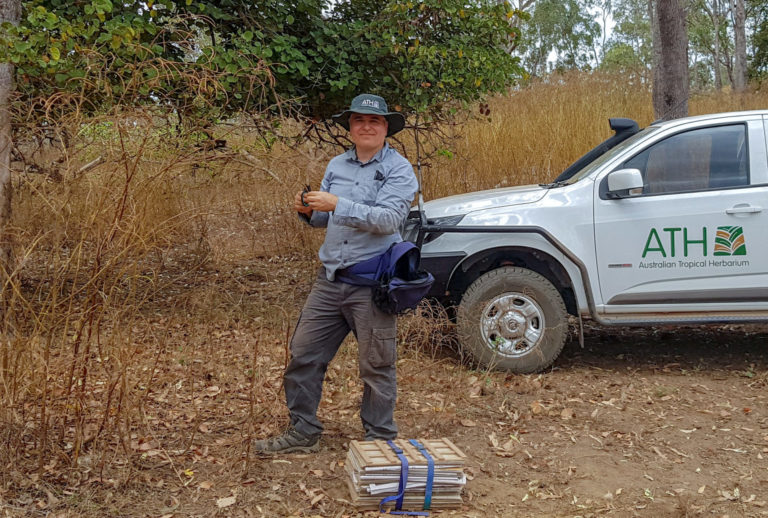James Cook University (JCU) will place itself on the frontlines of Australia’s tropical biosecurity efforts with plans to build a $580,000 quarantine glasshouse facility.
The glasshouse will form a critical firewall for quarantining and researching invasive weeds and new crop varieties for agricultural use – and give students access to vital research opportunities. It will be built at JCU’s Nguma-bada campus in Smithfield, Cairns, in collaboration with the Australian Tropical Herbarium, and the Northern Australia Plant Biosecurity Facility.
Weed ecologist Dr Daniel Montesinos said the facility would be the only one of its kind in northern Australia, with the next closest in Brisbane.

A boost for Australian biosecurity
“This facility will be a big boost for biosecurity in northern Australia and particularly for the Australian tropics, which has very different climates, natural habitats, and biosecurity threats to the rest of Australia,” he says. “In scientific terms, it will allow us to understand how plants evolve to become invasive in the tropics, a process which can occur differently compared to other regions.”
JCU’s reputation in the environmental sciences and marine sciences – both domestically and internationally – is, says, Dr Montesinos, already proven.
“This new facility is at the core of a push to also develop a comprehensive range of education and research opportunities in tropical biosecurity,” he told EducationDaily. “Although there are many excellent centres providing training in biosecurity through Australia, there is a dearth of training opportunities for tropical biosecurity, even though the tropics are one of the most biodiverse parts of Australia, with specific risks and opportunities in the area. Having this facility will allow us to develop specific training on live plant management from the undergraduate to the graduate levels, and also for professionals out of academia.”

The facility team will include Dr Daniel Montesinos, Associate Professor Lucas Cernusak, Associate Professor Lori Lach, Associate Professor Paul Nelson, Professor Susan Laurance and research students.
The new facility follows JCU’s August 2023 announcement of its involvement in a national initiative to protect Australia from invasive pests and diseases.
As a weed ecologist, he says, the funding for this facility is a “great joy and a great relief, as we will be able to effectively and safely develop targeted research for tropical weeds that can’t be efficiently studied elsewhere”.
“We will also provide with quarantine services to the regional industry that had to previously rely on faraway quarantine facilities when in need to import live plants,” he says.
Climate change will see weeds spread
With climate change one major area of research for invasive weeds, Dr Montesinos says “all predictions point towards an increase in the distribution area of weeds that we already suffer”.
“With increased temperatures many tropical weeds are expected to expand beyond the tropics, invading areas which currently don’t have the tropical conditions in which they thrive”.
“Researching their biology beforehand will be extremely valuable,” he told EducationDaily. “And there’s other advantages, such as if you wanted to import plants for ornamental purposes, or a new crop variety. These would ordinarily need to go through a lengthy quarantine process in quarantine facilities further south to make sure they’re not carrying viruses or insects. But with this new facility, our industry partners will be able to do that right here at JCU.”
Work on the facility is expected to start next year, with Dr Montesinos and his team receiving a $350,000 grant from the Australian Research Council Linkage Infrastructure, Equipment and Facilities scheme. JCU and the Australian Tropical Herbarium, a partner in the facility, will contribute a further $230,000 to the project.
“With these new initiatives, JCU is set to become a hub for tropical biosecurity, research and education.”








